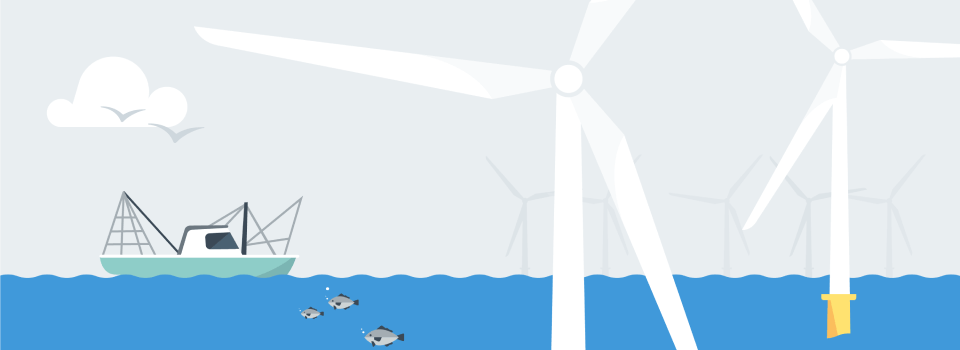Protecting biodiversity
As for the fish and other sea creatures that live inside Ørsted's wind farms – and on which fisheries rely for their income – these, too, can coexist happily with offshore wind, thanks in no small part to the expertise of a team of environmental specialists.
During construction, precaution are taken to reduce environmental impacts through the use of technology such as bubble curtains, noise mitigation screens, hydro sound dampers or suction bucket jackets to reduce noise. And once built, turbine foundations act as artificial reefs where new diverse habitats can grow.
Wind farms are closely monitored throughout operation to mitigate any possible impacts on the marine environment, including on commercially important species and habitats. This has included groundbreaking research into crustacean stocks on one of Ørsted's wind farms in the UK. This research showed no negative impact from offshore wind activities.







